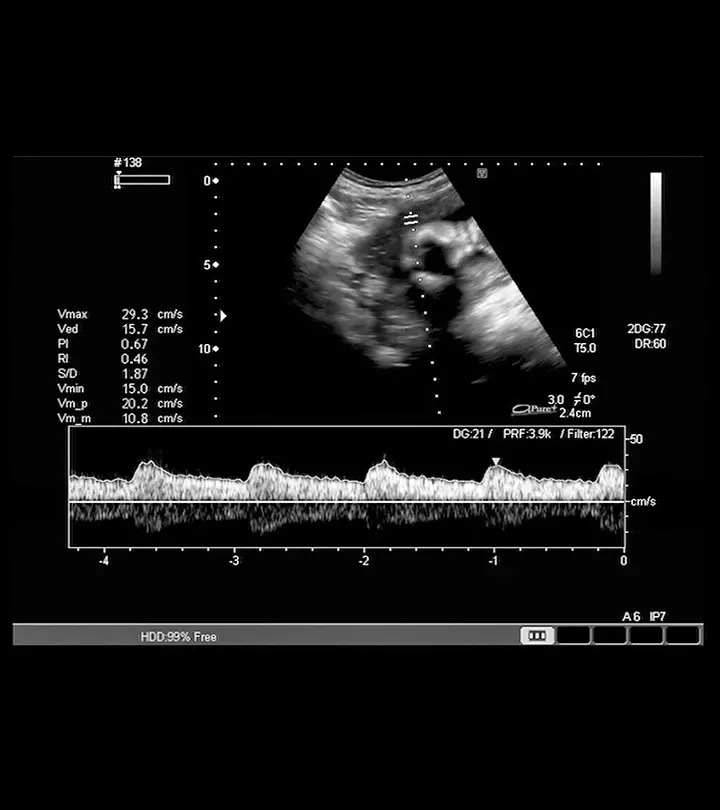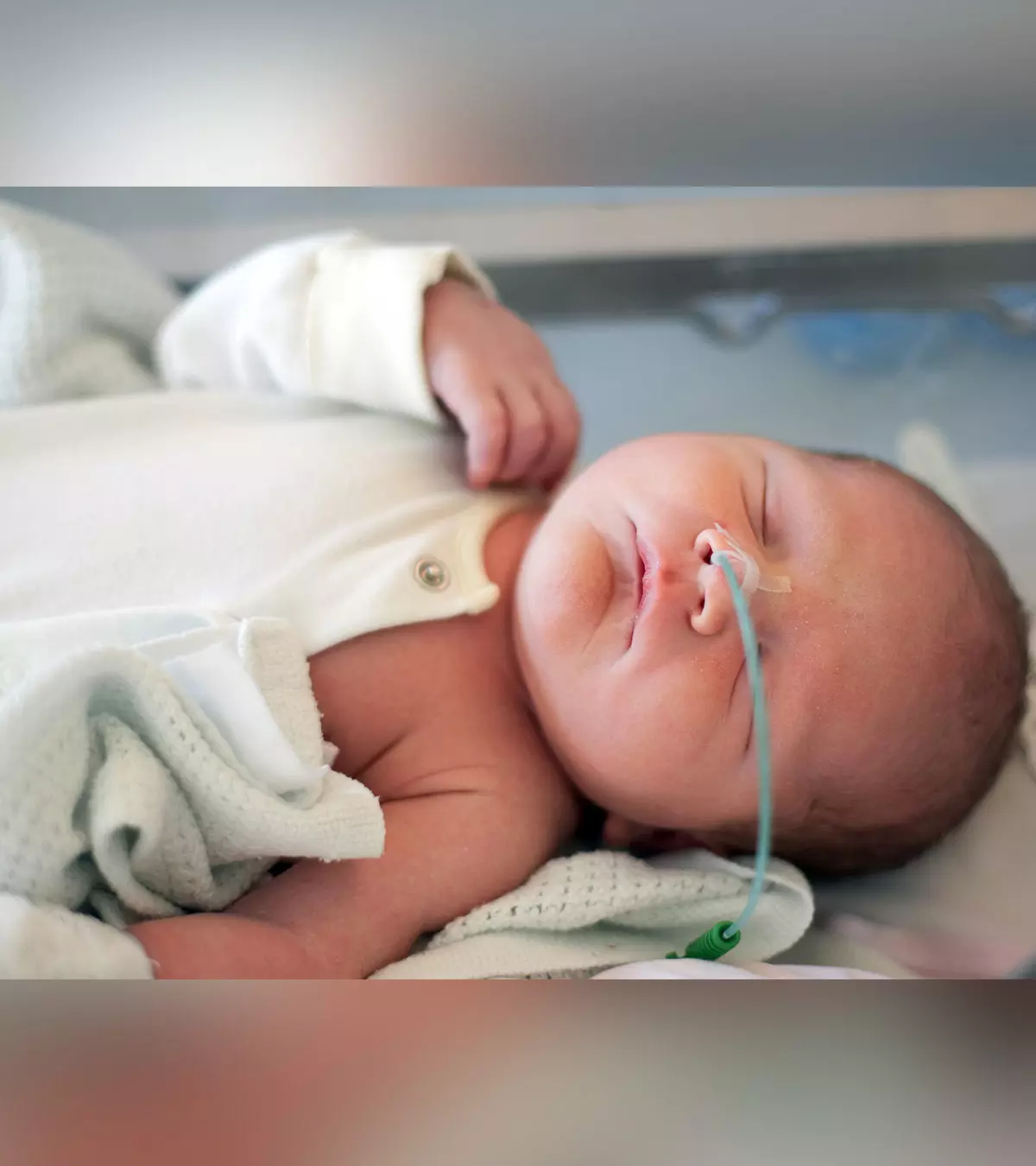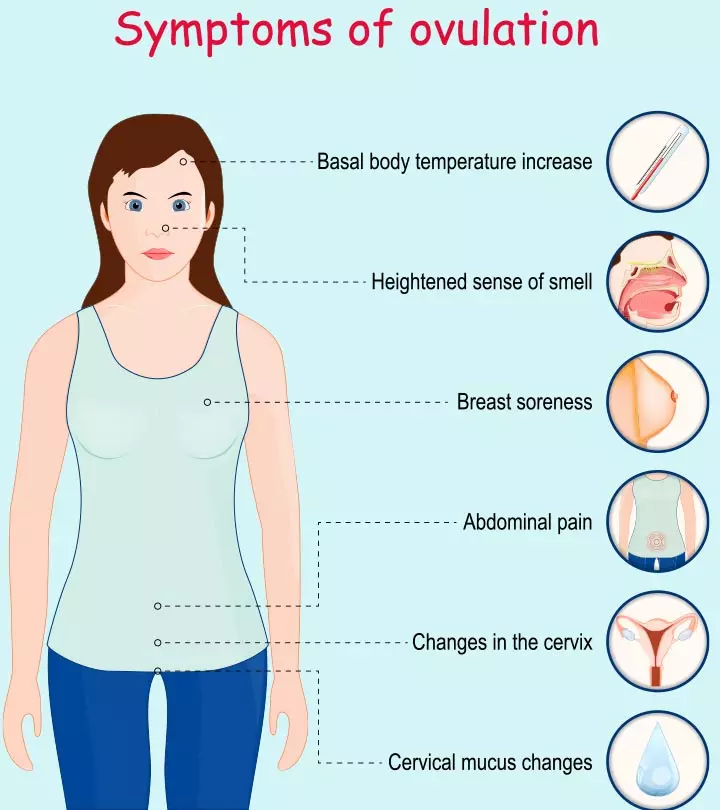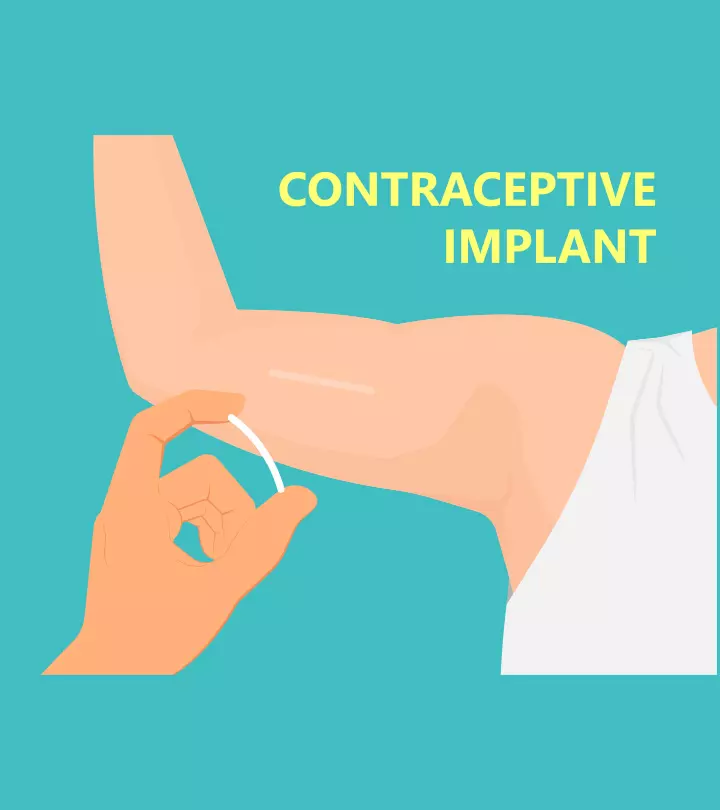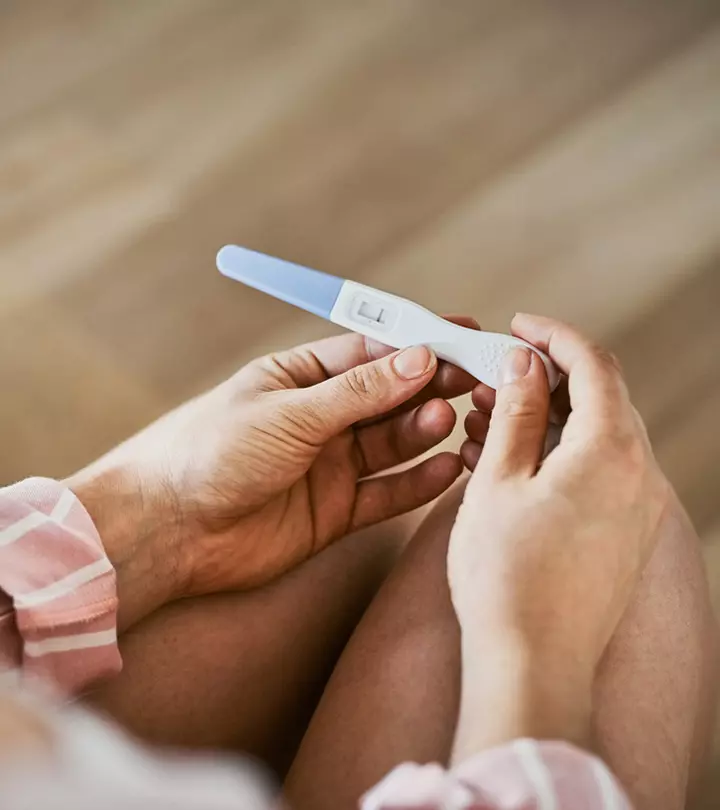
Image: Shutterstock
Ovulation is the process of egg release from one of the two ovaries (1). These eggs help you get pregnant, but some women may not be ovulating despite regular menstrual periods. But how can you get pregnant when you are not ovulating? This post helps you understand it better.

The egg not getting released from the ovaries is termed anovulation. Also called chronic anovulation, it continues for a year or longer and is a common cause of infertility. According to the National Institute of Health, problems associated with ovulation account for around 30% of infertility cases (2).
Key Pointers
- Anovulation is a condition where the ovaries do not release eggs.
- It can be temporary or chronic, whereas chronic anovulation could be one of the main reasons for infertility.
- Anovulation can be managed by lifestyle modifications (such as diet, exercise, and self-care) or medications in most cases.
What Causes Anovulation?
Multiple hormones play a role in ovulation. Some of them include gonadotropin-releasing hormone (GnRH), follicle-stimulating hormone (FSH), and luteinizing hormone (LH). Any imbalance with these hormones can cause problems with ovulation.
Some other causes of anovulation are as follows (3):
1. Obesity
High body weight or BMI (body mass index) can cause a chemical imbalance in the body if there are excess androgens such as testosterone.
2. Stress

Excessive stress can cause an imbalance in the hormones necessary for ovulation.
3. First and last periods
Anovulation can occur at any time during one’s menstrual cycle
. However, it is more common when a girl first begins her menstruation or is approaching her menopause. Anovulation during this time may occur due to hormonal imbalance.
4. Low body weight or excessive workout
Excessive exercising or low body weight can negatively impact the woman’s pituitary gland leading to underproduction of LH and FSH.
5. Not consuming enough calories
A lesser bodyweight than usual can cause hormonal imbalance and may lead to issues with ovulation.
6. Hormonal birth control

The hormones in birth control pills prevent one from ovulating (4).
7. Polycystic ovary syndrome (PCOS)
PCOS is a common condition affecting around one in ten women of childbearing age, causing anovulation.
The World Health Organization reports 8% to 13% of PCOS cases reproductive-age women. Small and painless cysts indicate the syndrome on the ovaries along with acne, or excessive male pattern hair growth, especially around the chin and upper lip. PCOS leads to an overproduction of male hormones or androgens such as testosterone. With increased androgen levels, the ovarian follicles that contain eggs remain small.
 Point to consider
Point to consider8. Abnormalities of TSH or prolactin
The imbalance of either of these hormones can cause issues with ovulation.
9. Hypogonadotropic hypogonadism (HA)
It is a condition in which the ovaries make little or no sex hormones (5) and is characterized by ovulation and reproduction disorders (6).
10. Ovarian insufficiency
It is a condition wherein the ovaries stop functioning before a woman turns forty years and may lead to anovulation (7).
What Are The Symptoms Of Anovulation?

Women with anovulation experience the following symptoms (8):
- Extended or shortened menstrual cycles
- Absent menstrual cycle
- Irregular menstruation or amenorrhea
- Lack of cervical mucus
- Irregular basal body temperature (BBT)
Many women with anovulation may continue to have normal periods. In such cases, your doctor may need other tools to diagnose anovulation.
How is Anovulation Diagnosed?
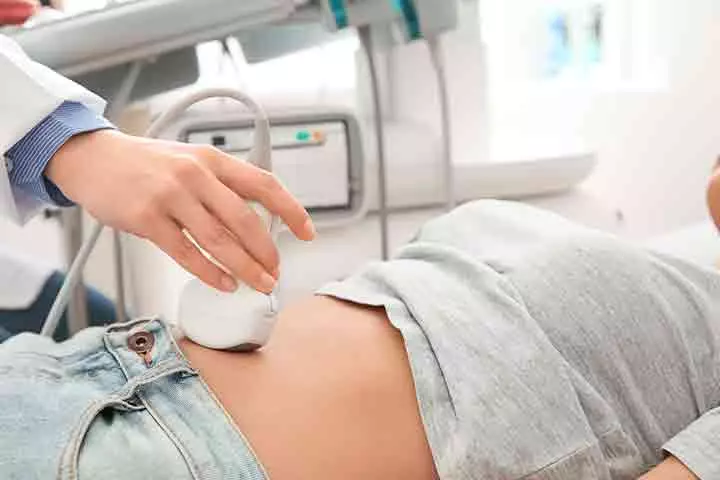
If your menstrual cycles are regular and you still have trouble with conception, the doctor may run the following tests to rule out any underlying problems (3).
- Checking blood progesterone levels
- Checking blood prolactin and thyroid levels
- Ultrasound examination of pelvic organs
- Uterine lining or other blood tests depending on the woman’s overall health and history
Is It Possible To Get Pregnant Without Ovulating?
Pregnancy is possible only when an egg is fertilized by male sperm. There is no egg to be fertilized without ovulation, and you can not get pregnant (9). However, with some lifestyle modifications and medications, anovulation can be managed.
Treatment Of Anovulation
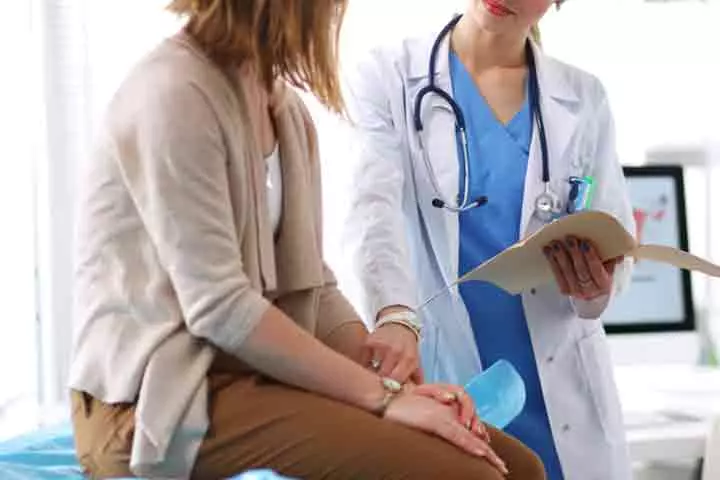
Your doctor may recommend the following lifestyle modifications to treat anovulation (3).
- For women with high BMI or obesity, the doctors may ask them to lose weight. Losing weight can be difficult for women with anovulation, but you can achieve it with nutritional support.
- For women with meager body weight, nutritional support can help them gain healthy weight.
- For those who indulge in excessive heavy workouts, reducing the intensity and frequency can help.
- Therapy is helpful for those experiencing stress and anxiety.
- Sustainable diet plans can help attain a healthy weight and menstruation.
For severe cases where lifestyle modification does not help, the doctor may prescribe the following medications:
- Clomiphene citrate
- Aromatase inhibitors
- Insulin-sensitizing agents
- Gonadotrophins
 Things to know
Things to knowEven after all medical interventions, if you cannot conceive, the doctor may recommend other treatment options such as in-vitro fertilization (IVF) or intrauterine insemination (IUI).
Frequently Asked Questions
1. When does ovulation occur after the anovulatory cycle?
Some women may start ovulating in the subsequent menstrual cycle following an anovulatory cycle. However, others may continue their anovulation for months or years before they resume ovulating (10).
2. How does hyperprolactinemia, or elevated prolactin levels, interfere with ovulation?
Hyperprolactinemia, or the presence of high levels of prolactin in the blood, inhibits the production of follicle-stimulating hormone (FSH) and gonadotropin-releasing hormone (GnRH) in the body. These hormones are responsible for the occurrence of ovulation and the growth and development of released eggs (12).
Anovulation is more common than it seems. Many women suffering from anovulation may not be aware of the condition if they have regular menstrual cycles. They might come to know if they cannot conceive even after having regular cycles. If you have anovulation, you should try all suggested lifestyle changes as they are sustainable ways to ensure good menstrual health. You can consult your doctor or nutritionist if you have any queries.
Infographic: Notable Causes Of Anovulation
Anovulation is a condition characterized by the absence of ovulation in women. This infographic aims to provide a summary of the factors that contribute to anovulation. Improve your understanding of anovulation and empower yourself with knowledge about this common reproductive concern.
Some thing wrong with infographic shortcode. please verify shortcode syntaxAnovulatory cycles are a common occurrence in women’s reproductive health. Learn more about what they are and how to manage this condition in this informative video.
References
- How can I tell when I’m ovulating?
https://www.nhs.uk/contraception/methods-of-contraception/natural-family-planning/ - Diana Hamilton-Fairley and Alison Taylor; (2003); Anovulation.
https://www.ncbi.nlm.nih.gov/pmc/articles/PMC192851/ - Anovulation.
https://fertility.womenandinfants.org/services/women/anovulation - Do I ovulate while taking birth control pills?
https://www.plannedparenthood.org/blog/do-i-ovulate-while-taking-birth-control-pills - Hypogonadotropic hypogonadism.
https://medlineplus.gov/ency/article/000390.htm#:~:text=Hypogonadism%20is%20a%20condition%20in - Ahmed Elsayed Abdelaal; et al.; (2025); Reproductive outcomes in women with hypogonadotrophic hypogonadism, a case series study.
https://mefj.springeropen.com/articles/10.1186/s43043-021-00055-6 - Primary Ovarian Insufficiency.
https://medlineplus.gov/primaryovarianinsufficiency.html - Anovulation.
https://my.clevelandclinic.org/health/diseases/21698-anovulation - Ovulation and fertility.
https://www.tommys.org/pregnancy-information/planning-a-pregnancy/how-to-get-pregnant/ovulation-and-fertility - Anovulatory cycle.
https://www.osmosis.org/answers/anovulatory-cycle - Anovulation.
https://my.clevelandclinic.org/health/diseases/21698-anovulation#symptoms-and-causes - Leslie V Farland et al.; (2017); History of breast feeding and risk of incident endometriosis: prospective cohort study.
https://www.bmj.com/content/358/bmj.j3778/rr
Community Experiences
Join the conversation and become a part of our nurturing community! Share your stories, experiences, and insights to connect with fellow parents.
Read full bio of Dr. Pamela Adhiambo Muga
Read full bio of Dr. Ritika Shah
Read full bio of Rebecca Malachi
Read full bio of Dr. Joyani Das












